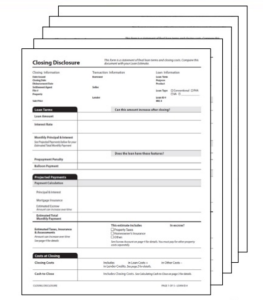Rules Surrounding Implementation of New Mortgage Disclosures
 There’s no doubt that the Consumer Financial Protection Bureau’s (CFPB) Know Before You Owe rule or TILA-RESPA Integrated Disclosures (TRID)—requires a great deal of collaboration between closing attorneys, lenders, and Realtors. Adapting to the significant workflow changes and various interpretations of the regulation has created an issue in one aspect of the rule that few anticipated would be an issue – the sharing of data and documents, and the fear of violating privacy laws.
There’s no doubt that the Consumer Financial Protection Bureau’s (CFPB) Know Before You Owe rule or TILA-RESPA Integrated Disclosures (TRID)—requires a great deal of collaboration between closing attorneys, lenders, and Realtors. Adapting to the significant workflow changes and various interpretations of the regulation has created an issue in one aspect of the rule that few anticipated would be an issue – the sharing of data and documents, and the fear of violating privacy laws.
The closing attorney is put in a precarious position when a Realtor asks for a copy of the buyer’s Closing Disclosure. The real estate agent may be looking out for their customer, but they are technically not part of the mortgage transaction. The CFPB has determined that the buyer’s Closing Disclosure contains personal financial information. When real estate agents ask for copies, there’s nothing that seems to allow the attorney to provide the disclosure to the agent except consent from the consumer. There will be some consumers who decline due to identity theft concerns. This is one place where the law says the consumer has these rights. Most attorneys simply refuse to be involved with providing copies other than to the buyer and the lender.
No matter how you look at it, the buyer’s Closing Disclosure is off limits to agents unless the buyer wishes to provide it. However, be careful what you ask for. Once agents receive it, they are now in possession of a personal financial information document and must protect it. If the Closing Disclosure is confiscated or stolen, the agent may be responsible if that data is misused.
Questions?
If you have any questions on this or other topics involving residential real estate closings contact Attorney Mike Krone at Kriss Law either by phoned at 617-213-3217 or by email at mike@krisslawatlasntic.com

